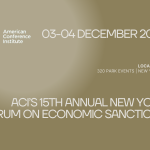Let’s Leave it to the Machines!
In an era awash with artificial intelligence, blockchain analytics and predictive algorithms, it’s tempting to believe that the fight against money laundering can be left to the machines. But in 2025, the world’s most progressive organisations are reaching a clear conclusion: technology is powerful, but people remain indispensable. Compliance systems may flag suspicious activity, but only human judgment can truly interpret the nuances behind it.
Today, a growing number of firms, from global banks to digital start-ups and property developers, are refocusing efforts on what really strengthens Anti-Money Laundering (AML) effectiveness: a resilient internal culture, robust training, and a renewed commitment to ethics. This article explores the current shift from rule-based to values-driven compliance, and how trends like immersive learning, empowered whistleblowing, and ethical leadership are becoming the frontline tools in tackling financial crime.
Technology Alone?
While technology has revolutionised transaction monitoring, it remains no silver bullet for AML. In 2024, several major financial institutions faced hefty fines despite having advanced AI systems in place. In one notable case, a European fintech firm failed to detect sophisticated layering schemes because its AI flagged only traditional red flags, missing subtler patterns that would have been obvious to trained staff.
The truth is simple: technology identifies suspicious transactions, but only people can identify suspicious intent. Human intuition, shaped by experience and ethical judgement, remains irreplaceable. Recognising this, many organisations in 2025 are moving away from a “tech-first” mindset towards a “tech-plus-human” approach, investing heavily in developing staff who can critically interpret alerts, escalate genuine risks, and make informed decisions that algorithms alone would never reach. The human factor is no longer optional—it’s essential.
Culture Over Controls
It is now abundantly clear that the leading edge of AML compliance is no longer about box-ticking exercises or periodic audits—it’s about creating a living culture of integrity. Companies now realise that true compliance thrives when it’s woven into everyday behaviours, not just documented in policy manuals. At HSBC, for example, new hires complete an interactive onboarding programme centred on ethical decision-making, not just regulatory memorisation. Meanwhile, in the real estate and art markets, sectors increasingly targeted by money launderers, firms are embedding compliance messaging into leadership communications and even linking bonuses to ethical performance metrics.
This shift recognises that sustainable AML efforts demand more than systems; they require values. From luxury auction houses to fintech start-ups, the best organisations are making compliance personal, practical and proudly visible, turning what was once seen as bureaucracy into a genuine business asset.
Next-Gen Training: What’s Different Now?
Over recent years, AML training has undergone a significant transformation, shifting from lengthy lectures to dynamic, interactive learning experiences. Microlearning modules now deliver concise, engaging content, often gamified to enhance retention and application. This approach caters to the modern workforce’s preference for bite-sized, accessible information.
AI plays a pivotal role in personalising training programmes. By analysing individual roles and risk profiles, AI tailors content to address specific needs—differentiating, for instance, between the requirements of sales teams and finance staff. This ensures that employees receive relevant, role-specific training, enhancing effectiveness and compliance.
Virtual reality has allowed for the introduction of immersive simulations into AML training, allowing staff to engage in realistic role-play scenarios. These simulations provide a safe environment to practise identifying and responding to suspicious activities, thereby improving real-world preparedness. Leading financial institutions are typically at the forefront of these innovations. Mastercard, for example, has expanded its TRACE anti-money laundering tool to the Asia-Pacific region, leveraging large-scale payments data to enhance detection capabilities. Similarly, HSBC has implemented the ARIC Risk Hub, developed in partnership with Featurespace, to strengthen its AML and fraud prevention efforts through adaptive behavioural analytics and machine learning.
All of these advances signify a broader shift towards more engaging, personalised and effective AML training methodologies, aligning with the evolving landscape of financial crime prevention.
Whistleblower Protections: From Liability to Leadership
In 2025, whistleblowers are increasingly recognised as vital allies in the fight against financial crime, rather than as liabilities. This shift is underpinned by practical innovations such as blockchain-based anonymous reporting platforms, which enhance confidentiality and trust in the reporting process . Additionally, some organisations have introduced corporate rewards programmes to incentivise ethical disclosures, acknowledging the personal and professional risks whistleblowers often face.
The cultural perception of whistleblowers is also evolving. They are now seen as integral to operational integrity, with their actions contributing to transparency and accountability within organisations. This change is reflected in the development of supportive legal frameworks and the establishment of dedicated bodies to oversee whistleblower protections .
These developments signify a broader commitment to fostering environments where ethical conduct is encouraged and protected. By embracing these changes, organisations not only comply with emerging regulations but also strengthen their internal cultures against misconduct.
Ethics as a Competitive Advantage
Ethical culture has now evolved from a compliance obligation to a cornerstone of business resilience and competitive differentiation. Organisations are now positioning robust AML ethics as a brand strength, appealing to investors, regulators and customers alike. This shift aligns with the broader ESG trends, where sustainable finance mandates not only environmental responsibility but also ethical financial conduct.
The integration of ESG principles into AML processes fosters a culture of transparency, ethical conduct, and sustainable business practices. By aligning AML practices with ESG standards, organisations demonstrate their commitment to ethical conduct and responsible financial operations, enhancing trust among stakeholders and reinforcing the organisation’s reputation.
Reflecting this paradigm shift, companies are increasingly appointing Chief Ethics Officers alongside Compliance Officers. This strategic move underscores the growing recognition that embedding ethical considerations into corporate governance is essential for long-term success. As highlighted in Ethisphere’s 2024 Ethics and Compliance Recap, the adoption of such roles signifies a commitment to fostering ethical cultures that drive performance and mitigate risks.
The Human Edge
As we navigate the complexities of today’s business world, it’s evident that culture, training and ethics are not mere compliance checkboxes, they are the true force multipliers in AML efforts. While technology offers powerful tools, it’s the human element that ensures these tools are applied judiciously and effectively.
Organisations that invest in cultivating a robust AML culture, providing comprehensive training, and upholding ethical standards are better positioned to detect and prevent financial crimes. Such investments foster an environment where employees are vigilant, informed and empowered to act responsibly. This proactive stance not only enhances compliance but also builds trust with regulators, investors and customers.
In contrast, entities that rely solely on technological solutions without nurturing their human capital risk falling short in the face of evolving threats. The integration of ethical principles into daily operations, reinforced through continuous education and leadership commitment, transforms compliance from a reactive obligation into a strategic advantage. Ultimately, it’s the synergy between advanced technologies and a steadfast human-centric approach that will define successful AML strategies in the years ahead.
And what about you…?
- What new training methods (e.g., microlearning, AI-personalised modules, VR simulations) would you be most excited—or concerned—about adopting?
- Do you believe your organisation treats ethical standards as a genuine competitive advantage, or more as a compliance obligation? Why?







